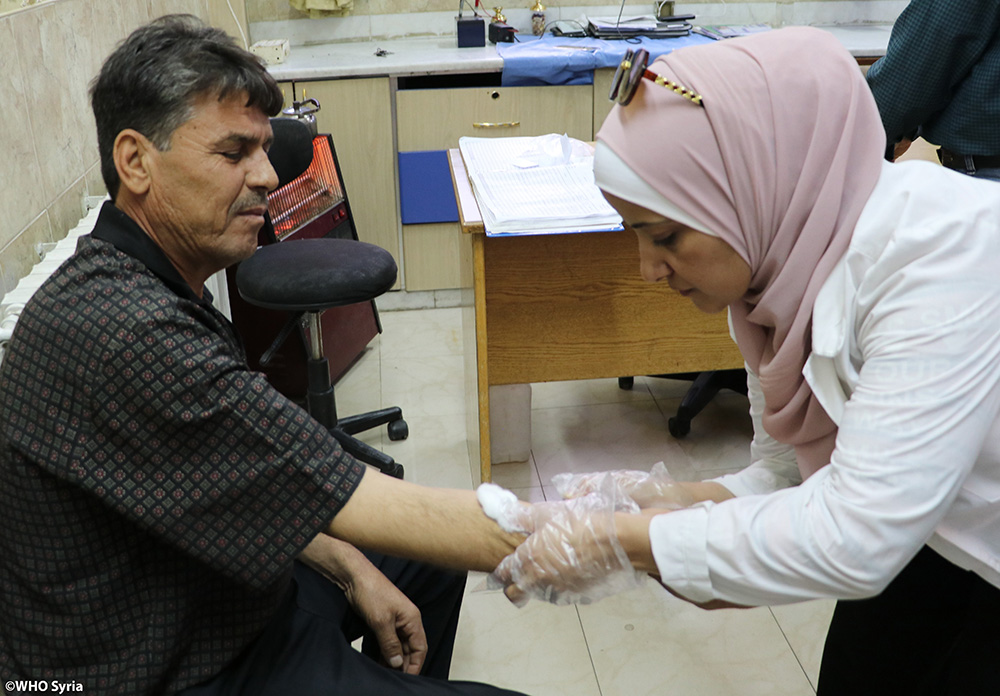 25 January 2024 – Abd Nour, a 52-year-old father from Aleppo, has been displaced 3 times with his family owing to the ongoing conflict in Syria. Once a shopkeeper, Abd became a day labourer to support his family after they were forced to flee their home. “For us, it has been very difficult,” he said. “It was hard to make plans not knowing how I would be able to support my family. As a father, I worried a lot.”
25 January 2024 – Abd Nour, a 52-year-old father from Aleppo, has been displaced 3 times with his family owing to the ongoing conflict in Syria. Once a shopkeeper, Abd became a day labourer to support his family after they were forced to flee their home. “For us, it has been very difficult,” he said. “It was hard to make plans not knowing how I would be able to support my family. As a father, I worried a lot.”
In summer 2023, Abd contracted leishmaniasis, which turned his world upside down.
Leishmaniasis remains a major health problem in Syria. Each year, the country typically records 70 000 to 80 000 cases of cutaneous leishmaniasis, the most common form. It is caused by a protozoan parasite that is transmitted to people through the bites of infected sandflies.
The neglected tropical disease has various clinical symptoms and, left untreated, can cause severe lesions, including ulcers. Infection can lead to serious disability and stigma, but timely treatment can prevent such complications. For Abd, the disease caused severe pain that left him unable to walk.
“I was terrified of the thought of passing this illness on to my pregnant wife and young son,” Abd explained.
WHO has been actively supporting the leishmaniasis programme in Syria since 2015, helping families and communities across the country. In 2023, in partnership with national authorities, WHO carried out leishmaniasis control activities in the most affected governorates: Aleppo, Hama and Idlib. This effort involved the indoor residual spraying of more than 73 000 houses, to protect over 369 000 people from the risk of infection. The programme also provides treatment, as well as training for Ministry of Health staff to enhance local capacity for effective case management.
WHO’s support for comprehensive, evidence-based treatment of leishmaniasis is a lifeline for patients. Dr Hassan Al-Zaher, Director of Al-Zahera Polyclinic in Damascus, where Abd was treated, reported that the clinic provided free treatment to 450 leishmaniasis patients in 2023 alone. This was possible thanks to WHO and Ministry of Health efforts.
Dr Iman Shankiti, Acting WHO Representative in Syria, further stressed the importance of comprehensive disease management to tackle leishmaniasis: “Beyond treatment of leishmaniasis, our efforts in Syria include educational campaigns and preventive measures to reduce the burden of this neglected tropical disease.”
Today, Abd Nour has resumed his daily work: “After looking back at my journey, I am thankful for every day. This experience taught me the importance of health and access to quality health care.”


